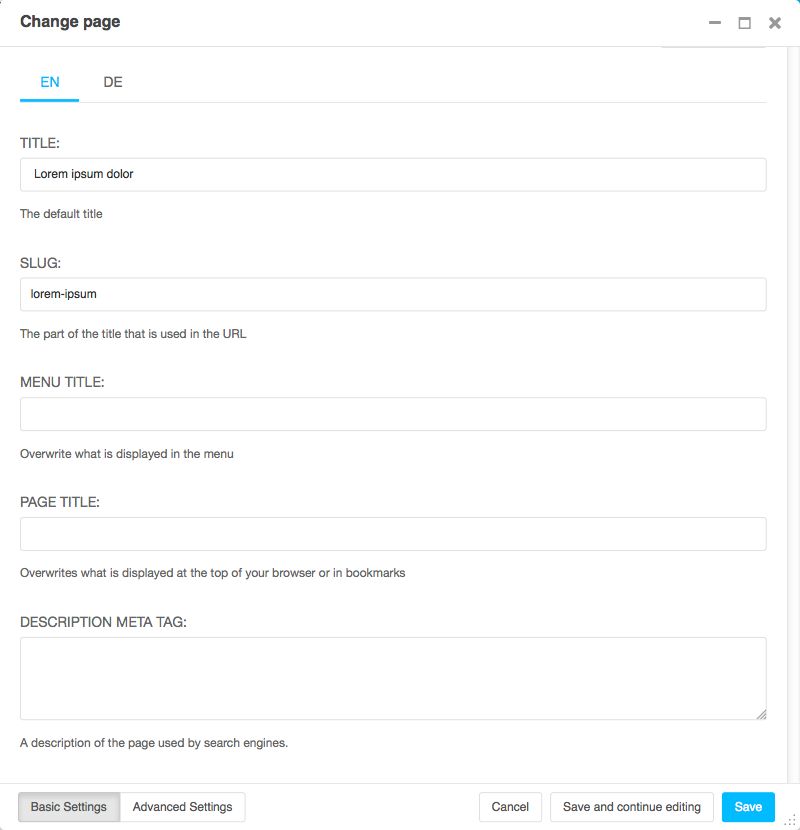Изменение настроек страницы¶
Панель инструментов django CMS предлагает другие полезные инструменты редактирования.
Перейдите в режим Редактирование на одной из ваших страниц и на панели инструментов выберите Страница > Настройки страницы…. В открывшемся диалоговом окне Изменить страницу можно управлять основными настройками страницы.

Некоторые ключевые параметры:
Slug: Для формирования URL-адреса страницы используется ее slug. Например, страница Lenses, которая является подстраницей Photography, может иметь URL, который заканчивается
photography/lenses. При желании вы можете изменить автоматически сгенерированный slug страницы. Держите slug короткими и осмысленными, так как они полезны как для людей, так и для поисковых систем.Заголовок меню: Если у вас есть страница с названием Фотография: теория и практика, возможно, вы не захотите, чтобы в меню отображалось все название - сокращение до Фотография будет более логичным.
Заголовок страницы: По умолчанию элемент
<title>страницы берется из Title, но вы можете изменить это здесь. Элемент<title>не отображается на странице, но используется поисковыми системами и веб-браузерами - по их мнению, это настоящий заголовок страницы.Метатег Description: Короткий фрагмент текста, который будет использоваться поисковыми системами (и отображаться в списках результатов поиска) и другими системами индексирования.
Есть также некоторые Дополнительные настройки, но вам не нужно беспокоиться об этом сейчас.